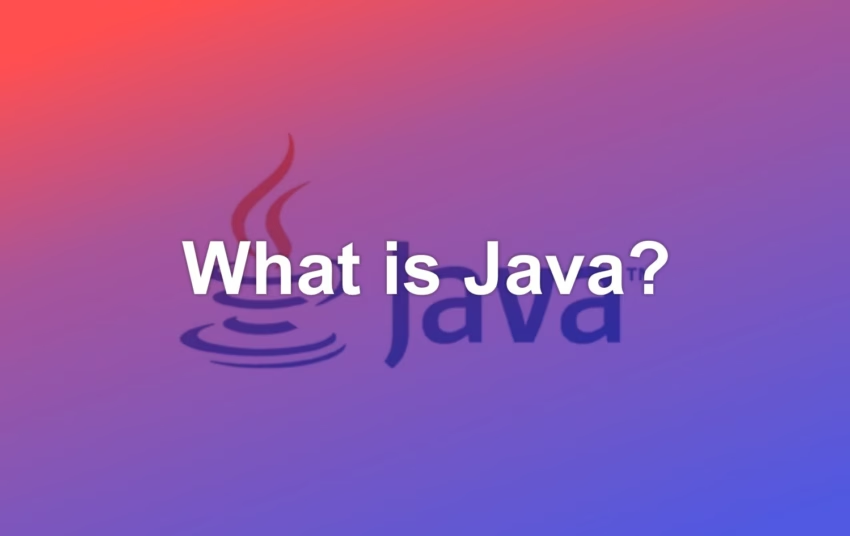
What is Java Programming Language?
Interested in knowing what is Java programing language? In this article, we will discuss what is Java including its features, popularity, platforms, etc. in detail.
The History of Java
While it‘s been there since 1995, the first full increment of Java was released first in January 1996. The original name was “Oak”, however, there were trademark concerns. It was then renamed Java. Read the definition of Java in “The Server Side” for more details.
James Gosling, the Sun Microsystem engineer who invented Java, hadn‘t envisaged its‘ wide use in the Internet economy. As a matter of fact, in 1996 the Internet and World Wide Web were just a couple of very new concepts.

Get a complimentary discovery call and a free ballpark estimate for your project
Trusted by 100x of startups and companies like
Rather, Gosling thought that Java will be used in small interconnected devices that could talk to each other.
A large set of improvements in Java API in Java 2 was a big milestone. Java 5 saw the addition of ’Generics‘, a feature that made significant changes to Java syntax.
Google released its Android ’Software Development Kit‘ (SDK) in 2009, basing it on Java. This was another major milestone for the language. Shortly, thereafter, Oracle acquired Sun Microsystems in 2010, causing some delays in Java 7 release.
By now, Java had become the most popular choice for object-oriented programming, however, 2014 saw the addition of more features. Java 8 release in 2014 saw the inclusion of the "Lambda" expression, giving developers the ability to write their functional-oriented apps.
Read about the evolution of the language in the definition of Java in “The Server Side”.
Special features of Java that made it so important today
More than 3 billion devices use Java in some form, and Oracle estimates that it‘s the most common runtime environment that enterprises use. Read about their estimate in the Oracle whitepaper titled “Java Usage Tracking and Visualization with Oracle Fusion Middleware”.
1,200 top developers
us since 2016
This popularity is due to the following features:
- Simplicity: Developers find it easy to learn.
- Familiarity: Most developers in the 1990s or early 2000s had started their careers with C/C++. Since Java looked so like those languages, they learned it quickly. Moreover, Java removed C/C++ complexities like pointers.
- It‘s a fully object-oriented programming language.
- The language enables automatic garbage collection and simple memory management, besides, features like generics. All of these make it a robust language.
- Static type-checking at compile-time and runtime checking makes it a highly secure language.
- Compilation into Java bytecode enables Java Virtual Machine (JVM) to execute code fast, hence Java offers high performance.
- Java code allows multi-threading.
- You can run a Java file in any system with a JVM. This portability is a major advantage.
Read this article for more details on the Features of the Java programming language.
A rich ecosystem supports the language. Technology giants like Oracle, IBM, and Google back it. An abundance of open-source libraries, rich ’Integrated Development Environments‘ (IDEs), tools, frameworks, and a large developer community are added advantages.
Different types of Java platforms:
All Java platforms have a JVM and application programming interfaces (APIs). There are four different Java platforms, as follows:
- Java Platform, Standard Edition (Java SE): This is the most common Java platform developers use. Java SE APIs provide the core functionalities. This platform defines the basic types and objects, while it also defines high-level classes for networking, security, database, and ’Graphical User Interface‘ (GUI).
- Java Platform, Enterprise Edition (Java EE): This is built on top of the Java SE, and it‘s suitable for enterprise-scale apps.
- Java Platform, Micro Edition (Java ME): A subset of Java SE API, it provides a lighter JVM, and it‘s suitable for apps running on small devices like mobile phones.
- Java FX: You can create Internet applications using a lightweight User Interface‘ (UI) API. Apps built using it use hardware-accelerated graphics and media engines, while they also use high-level APIs to access networked data sources.
Read more about the different types of Java platforms in the Oracle documentation “Differences between Java EE and Java SE”.
Planning your next software project?
Java is one of the oldest programming languages still quite popular among software developers to develop small-scale mobile apps to enterprise-level applications. For this reason, Java developers are easily available in the market.
However, to develop an application that is optimized, secure, and can make a mark in the competitive software market, you will need developers with exceptional Java technology skills and experience in using tools like the java development kit.
You can find such field-expert Java developers in the software developers community at DevTeam.Space. Read our article to get an idea of how our developers ensure Java program performance.
Write to us your initial project specifications via this form, and one of our account managers will get back to you with further assistance.
FAQs
It is used to write applications for different platforms that run JRE. Java applications can be run on desktop or mobile devices.
It is a general-purpose, strongly-typed, concurrent, object-oriented language.
Java source code is relatively simpler to use, easy to maintain, platform-independent, and portable. Moreover, Java code supports garbage collection, multi-threading, etc.


